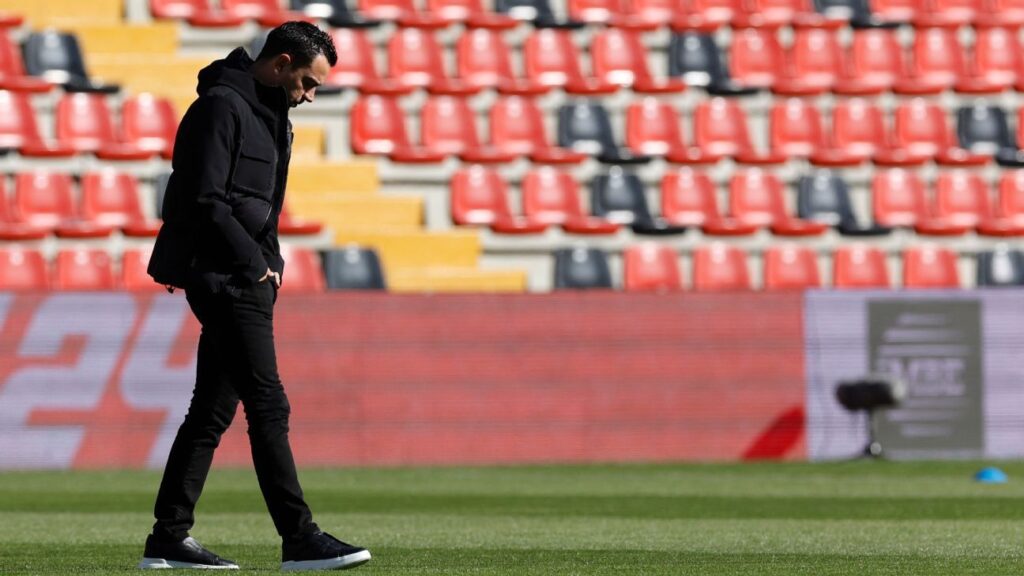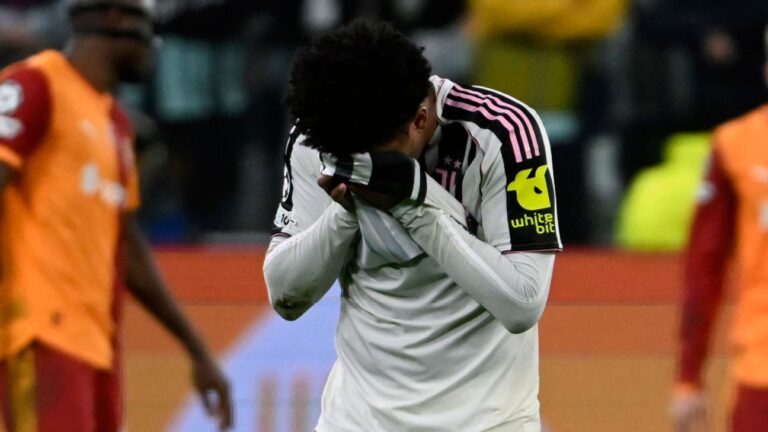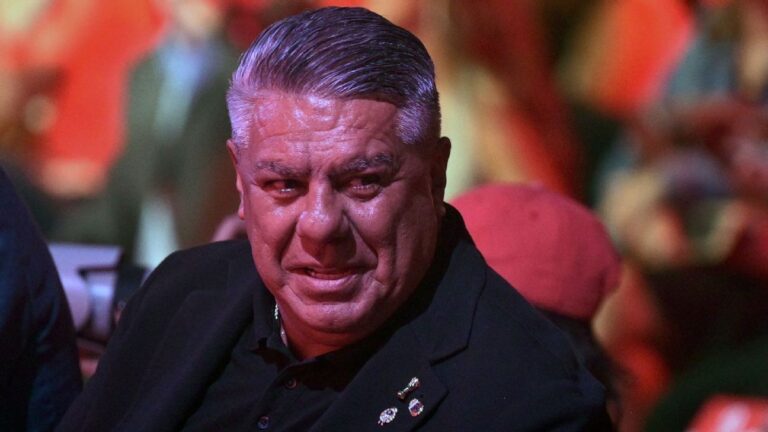Three important football coaches announced their impending departures across the past few days: Sven-Göran Eriksson, Jürgen Klopp and Xavi Hernández.
The former two were greeted by waves of emotional disbelief and gushing appreciation as a vast range of people said, explicitly and implicitly: “We love you, we respect what you’ve done. This is going to leave a chasm in our lives.”
Xavi’s shock announcement that he feels beaten up, blamed and nearly broken, causing him to walk away from his Barcelona contract in five months at the latest, was pretty much greeted with criticism, impatience, schadenfreude and a boorish: “OK, he’s gone … who’s next?”
– Stream on ESPN+: LaLiga, Bundesliga, more (U.S.)
Naturally there are some differences between the three situations.
“Svennis” is a kind, gentle, interesting and extraordinarily successful Swede who won three European trophies (with IFK Göteborg and Lazio), was runner-up in three more including the 1990 European Cup final against AC Milan, won the Italian Cup four times with three different clubs (Sampdoria, AS Roma, Lazio) and made Benfica champions of Portugal three times.
Eriksson, a man who when I visited him in his lakeside home in southern Sweden was housing a family of Afghan asylum seekers in a cottage in his garden, has announced that not only is he dying of incurable cancer but that his remaining timespan is a year at best.
The feedback on how he’s viewed reached a peak at the Swedish Sports Gala in Stockholm last week when the great and the good stood and just kept on applauding when he took the stage, to the point that a smiling, bashful Eriksson had to shush them and, as he usually does, play things down rather than play to the gallery.
Back to Sven in a moment.
Klopp’s “farewell” was because the 56-year-old German wanted to take charge of his destiny, to be honest and open with people long before his ebbing energy reached anything like debilitating, threatening levels.
Again there was a wholly justified and often quite moving explosion of disbelief, disappointment, adoration and — crucially — respect.
Klopp has set renewed standards at Liverpool, infused the club with his personality, and only a miser or a liar could disagree that he has been immensely good for football in England. He’ll be badly missed when he departs in June.
Xavi’s announcement, the reasons and the reception were all noticeably different from the other two.
Recent times have seen not only a roller coaster of football action (five matches in 13 days with a gross total of 29 goals, two wins and three defeats), they’ve produced a nose dive in emotional strength and positivity from the Catalan who “celebrated” his 43rd birthday in the midst of that hellish onslaught of competitive action during which his squad exhibited constant frailty.
From telling local journalists that he started every day full of optimism, that he always saw the glass half-full, that he took all the criticism, the mocking, the attacks, the memes with good humour, he suddenly chose the afternoon before this weekend’s excruciating 5-3 defeat at home to Villarreal to say: “Perhaps I’m the only one to really understand the reality of this club’s situation.”
The words of someone who felt alone.
Once his team lost 5-3 having led 3-2 with six minutes of normal time left, the mood changed radically. During the match he was once again booked for his protests. He went and found a TV camera lens and said, directly down the barrel, that the refereeing team not awarding a penalty to Barcelona at 3-3 in the 89th minute was “shameful.”
Please note, the refs were right and Xavi was wrong.
Then, after the match, the Barça coach not only announced that he had decided to quit a year earlier than summer 2025, which is when his contract ends — a deal which Barcelona renewed, improved and extended only 127 days previously — he used some very revealing and, in my view, damning phrases.
While saying that he was making this announcement to try to change the team dynamic, to try to kick-start a big finale to the season and so on, he added: “The sensation of being Barcelona coach is disagreeable and cruel — you almost always feel a lack of respect, that your efforts are not valued and that this job is a tremendous drain on your mental health. It’s a drain on your energy and, while I’m a really positive guy, it gets to the stage where you decide that it makes no sense to continue.”
Now, listen to me closely. No playing legend ever deserves a “free pass” at a club once he becomes the coach or president or whatever. And it’s not in any way unfair to put Barcelona’s most recent months with Xavi in charge under the microscope of constructive criticism — not at all. But this is a guy who was not only an inspirational linchpin during several years of the greatest, most successful football Barça has ever played, he also returned, dragged the training ground culture out of the gutter, restored competitive aggression, won the title, met his primary target this season of getting through the Champions League group stage and has a very positive “net” record in Clasicos.
Those facts should all demand that, whether or not his coaching performance has either levelled off or dropped off since winning two trophies last season, respect, fairness, decency and patience should all be 100% guaranteed in how he’s treated and spoken about.
The general tone of the reaction to his news and to his words, on radio, television, newspapers and social media, was horrible: dismissive, disdainful, critical and included most of the elements Xavi had despaired of during those last couple of news conferences.
In summary, across the reactions, the messages were that he had reacted immaturely, in the heat of the moment. That if his intention was to help the squad by leaving in summer then why not just leave now. That he’ll probably be sacked at the first mishap in the team’s performances going forward. That the players won’t take his authority seriously anymore. And of course then there was the vulture speculation, across a host of names, as to who might be next — whether that’s immediately or in summer.
Very little time was spent really “hearing” what Xavi had expressed, or appreciating him, or trying to balance out that, perhaps, his problems in recent months are very far from his own making.
I link Xavi’s decision, and how it has been received, to Klopp’s and Eriksson’s announcements because the three men are united in the outrageous treatment they’ve had to suffer at one time or another.
– Klopp’s best moments at Liverpool after shock announcement
They’re emblematic of the disgusting trend in which media, fans and even some in their own industry will treat top sportsmen and sportswomen as feelingless, expendable commodities — until they die, retire or win a big award or trophy. Then, and only then, everyone gushes.
Eriksson, particularly in England, was relentlessly portrayed as a feckless playboy. His private life became fodder for not only the front pages of tabloids but began to dominate the back pages, too. I know, because we talked about it, that he felt embarrassed, humiliated, betrayed by some people around him, hounded.
Klopp, because under his guidance Borussia Dortmund and then Liverpool lost two Champions League finals, a German Cup final, a Europa League final and a League Cup final in the space of five years between 2013 and 2018, was regularly branded as a bottler, a loser and someone who didn’t quite have the “right” stuff. It was ridiculous, vindictive and intemperate. And wrong.
The German has been derided and mocked for his relentless unwillingness to drop or to tone down his answers on specific subjects when he thinks that he, his players or his club are being ignored on certain serious issues about which he and they have strong feelings.
Now, after he suddenly revealed that his Auf Wiedersehen moment is imminent, everyone seems to have got things into focus: Klopp is legendary, impressive, era-marking … a behemoth of the modern game in England.
The pendulum bashes high-profile people while they are doing their jobs, and then swings back when, as I say, they are ill, dying, dead, retiring, winning or leaving in triumph. Mass hypocrisy.
Xavi added something else; he argued that Barcelona have a particular form of this sickness: disparaging anyone when they are there (he named Jordi Alba, Sergio Busquets and former coach Ernesto Valverde) and then appreciating or missing them only once they leave. He knows that Pep Guardiola, too, left the club unhappy, burned out, feeling deeply bruised and underappreciated.
So, just to wrap this up by using some emphasis: The coach of Spain’s reigning champions, winners of the most surprising and against-the-odds LaLiga title I can ever remember, who met the first of this season’s objectives set by his employers, who was offered and signed better, longer contract terms four months ago, has decided to quit because of how poisonous, vindictive and unappreciative the environment around him is.
Journalists, editors, media bosses, fans, ex-players and coaches have joined in making manager sackings an “entertainment” industry in itself — something that is becoming a daily “trending topic,” something which coaches are forced to talk about and, worse, worry about weekly. A blood sport.
I, for one, find it disgusting. And whether Xavi is or isn’t the right man for Barcelona’s current needs, I fundamentally object to all the things which have combined to make him say that he’d had enough.
I think that were you to ask Klopp and Eriksson whether or not they agreed with me, their answers would be firm and clear.




